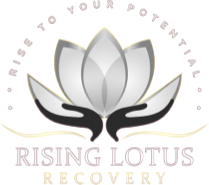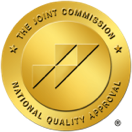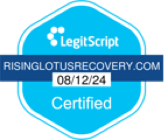Recovery from an addiction takes time—there are key steps to this journey. And rehabilitation is a crucial tool for those looking to take control back over their lives. But how does it work, exactly?
Rehab can be broken down into several key steps:
- Intake and assessment
- Detoxification
- Rehabilitation and support
- Aftercare
By providing these services, rehab offers structured support and compassionate care to help people overcome addictions.
Intake & Assessment
Every rehab experience begins with an intake and assessment process. This is vital to everything that follows. During this process, your loved one works with professional support workers to clearly outline their needs.
Medical histories and personal histories are carefully reviewed. Your loved one is a unique person, and there is no one-size-fits-all solution to addiction recovery. These initial assessments evaluate:
- History of substance abuse
- Mental health
- Physical wellness
Then, the support team creates a personalized care plan tailored to help your loved one begin the journey to long-term recovery. The focus is on offering judgment-free, professional care to guide your loved one toward success. This all sets the stage for future steps.
Detoxification
Detoxification, or detoxing, is an essential step on this journey. This is the process of clearing harmful substances from the body. With medical supervision, detox is a safer and more manageable process. Professionals monitor withdrawal symptoms and provide treatments to ease discomfort.
For anyone struggling with addiction, this is necessary to manage withdrawal safely and prepare for the next steps. The body needs to purge itself—no matter the kind of addiction.
During detox, your loved one’s body begins to heal physically during this time. However, detoxing can sometimes cause unfortunate side effects:
- Nausea and vomiting
- Sweating and chills
- Anxiety or insomnia
- Muscle aches and fatigue
Despite these, detox is often a turning point. Your loved one receives comprehensive support to overcome these challenges and finish the detox process.
It’s the beginning of a new chapter where the body and mind are cleared of substances. This lays the foundation for deeper healing—physically, mentally, and spiritually.
Rehabilitation & Support
Once detox is complete, rehab focuses on addressing the underlying causes of addiction. Once these are clear, the support team works to help your loved one build healthier habits.
Every day is a little different, but it’s all about learning how to manage stress without relying on external substances and harmful habits.
Therapy is a central part of this stage. Your loved one is surrounded by a team of loving professionals and peers who understand their struggle. They’ll learn more about:
- Identifying and managing triggers that lead to substance use.
- Developing coping strategies to handle stress and challenges.
- Building communication skills to strengthen relationships.
- Setting achievable goals for a healthier and more fulfilling lifestyle.
- Establishing a support system to maintain long-term recovery.
Ongoing support, including individual counselling and professional guidance, reinforces progress. Rehab isn’t just about abstinence—it’s about developing the skills and resources to live a substance-free life.
Aftercare
After completing a rehabilitation program, support doesn’t stop. Our team provides continued support during the adjustment period. Without ongoing resources, the risk of relapse can increase, so aftercare is designed to maintain stability for your loved one.

Recovery is a long and rewarding journey, and our team believes in aftercare support. Aftercare involves a range of programs, like therapy sessions, support networks, and other assistance to help your loved one get back on their feet.
One key part of helping people maintain long-term sobriety is working together to create a relapse prevention plan. We’ll help your loved one set achievable goals and build a healthy routine.
This aftercare support helps your loved one carry their lessons out of rehab and into their daily life to increase the likelihood of sobriety.
Choosing The Right Rehab Center
Finding the right rehab center is the first step toward recovery. A thoughtful decision can make all the difference in how supported and prepared someone feels throughout their journey.
When choosing a rehab center, consider these factors:
- Location—choose a center that feels accessible and comfortable.
- Cost—determine what’s financially feasible, and check insurance options.
- Programs—look for a variety of treatments, including therapy and aftercare.
- Personalization—ensure the center tailors care to individual needs.
- Professional support—seek out licensed, compassionate professionals for guidance.
All of these can impact the experience of rehab. Take time to explore the options available, and make sure to reach out to the support team. This helps you gain a better understanding of what to expect!
Let Our Team Help
Rehab provides the building blocks to overcome addiction and find long-term recovery. It’s a path filled with compassion, professional care, and the tools needed for a healthier and more fulfilling life.
If you or someone you care about is ready to take that first step, contact our team at Rising Lotus Recovery today. We’re here every step of the way, and we know how to help. Let’s make a difference—together.




























